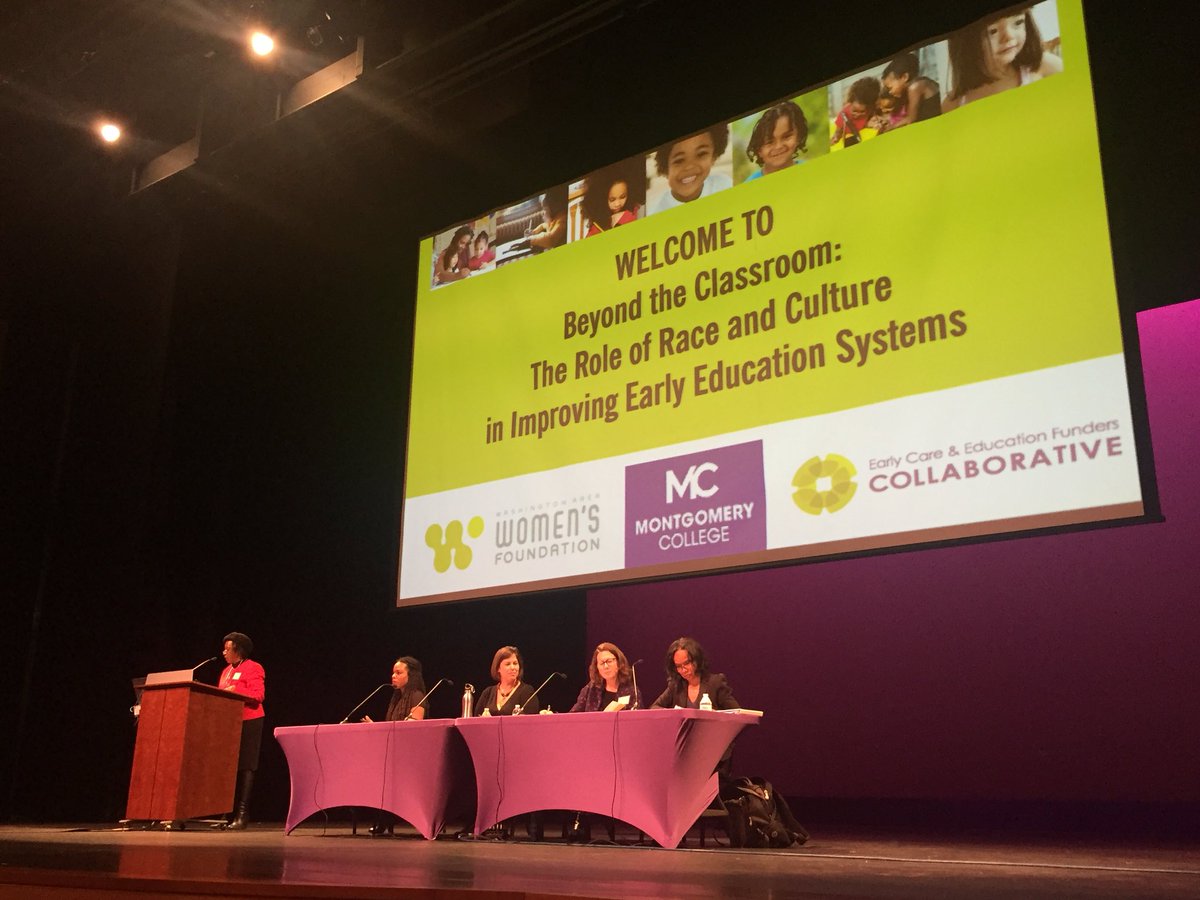On Saturday, January 20, 2018, more than 200 early education leaders and professionals attended Washington Area Women’s Foundation’s annual regional Early Care and Education Summit. The event, co-hosted by the Early Care and Education Funders Collaborative (ECEFC) and Montgomery College’s School of Education focused on the role of race and culture in improving early education systems.
Participants attend workshops in English and Spanish by leading experts on a range of issues related to the pre-school to prison pipeline, improving quality care and strengthening the workforce, community engagement, working with diverse populations, kindergarten readiness, and ensuring the socio-emotional needs of young children, among other topics. They also engaged in discussions focused on creating early care and education policies that are reflective of the needs of families and communities.
Program Highlights
The Summit launched with an opening keynote presentation by the leadership of the Equity in Early Learning Initiative, a partnership of The Campagna Center, School Readiness Consulting, and Wonders Early Learning + Extended Day. Lindsey Allard Agnamba of School Readiness Consulting provided a historical perspective of the importance of race in early childhood education policy, with Tammy Mann of The Campagna Center and Joanne Hurt of Wonders Early Learning + Extended Day punctuating Lindsey’s points with stories from their own experiences working in the field.
Participants had the opportunity to attend smaller workshops facilitated by local and national experts, including presenters from Bank Street College of Education, Children’s National Health System, Mary’s Center, Montgomery College, NAEYC, Naval District Washington Region, Northern Virginia Community College, School Readiness Consulting, Trinity Washington University, and Wonders Early Learning + Extended Day.
The day closed with a panel discussing diversity in the early care and education field, with a focus on how early education systems can improve in their support of an inclusive workforce. Cemeré James of National Black Child Development Institute moderated the panel discussion featuring Stacie Burch of Anne Arundel Community College, Florence Kreisman of Mary’s Center, Marica Cox Mitchell of NAEYC, Sonia Prundeda-Hernandez of Montgomery College, and Mandy Sorge of National Governors Association. Cemeré and the panelists highlighted the significance of educators’ advocating for their own advancement and to inform decisions of policymakers that impact them and the children they serve.
Review the Summit program book here.
Commitment to Racial Equity
In 2016, Washington Area Women’s Foundation made a public commitment layering a racial equity lens on our work, on top of our existing gender and class equity lenses. To compliment The Women’s Foundation’s commitment, the ECEFC formally adopted a racial equity commitment into its work, as well.
With this new consideration, the ECEFC did not only need to incorporate racial equity in how it considers its grantmaking, but across its full body of work, including its annual regional early care and education summit. In addition to deciding to make race and culture the Summit theme, the ECEFC made changes to the programming to ensure that early childhood educators, who are predominately women of color, had the opportunity attend, including holding it on a weekend and offering participation credit across Maryland, Virginia, and Washington, DC.
Early Care and Education Funders Collaborative
Launched in 2008, as a multi-year, multi-million dollar collective investment effort, the ECEFC holds the distinction of being the only early care and education funders collaborative in the country that works on systems-change across state lines. Its mission is to increase the quality and capacity of, and access to, early care and education in the Washington area, with the goal of closing kindergarten readiness gaps throughout the region. The ECEFC is supported and directed by corporate funders and local and national foundations and staffed by The Women’s Foundation.



